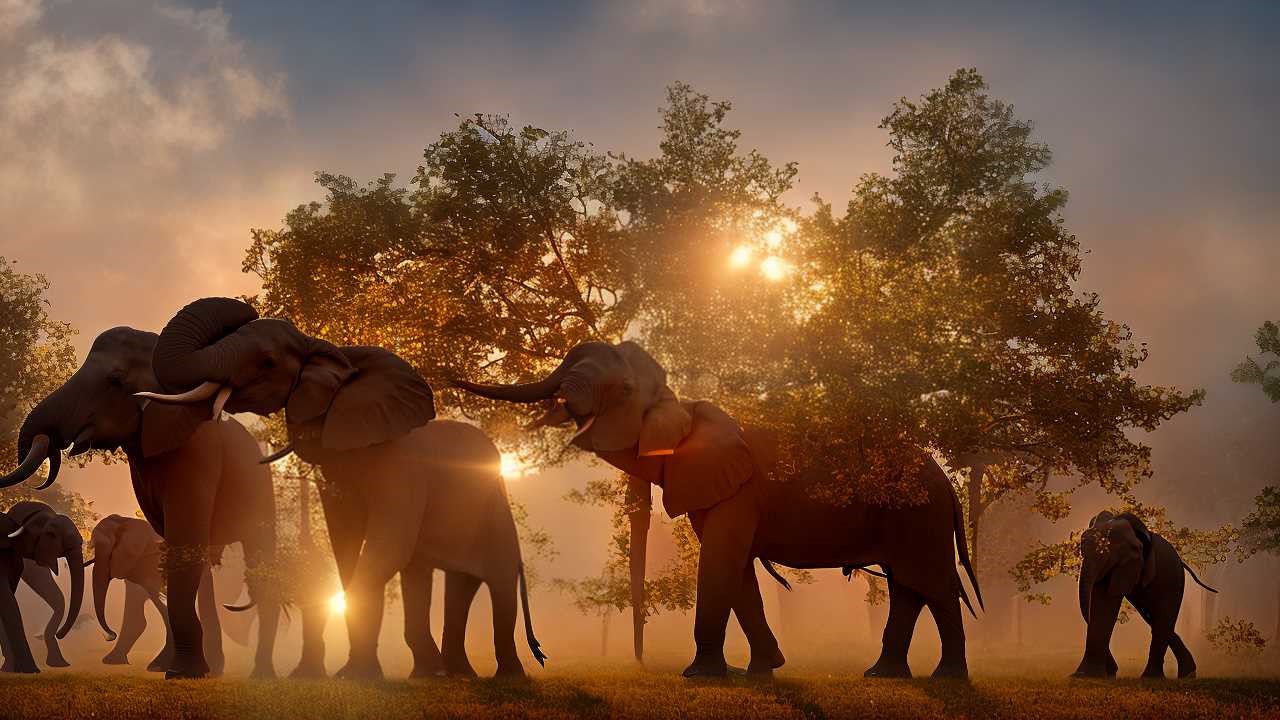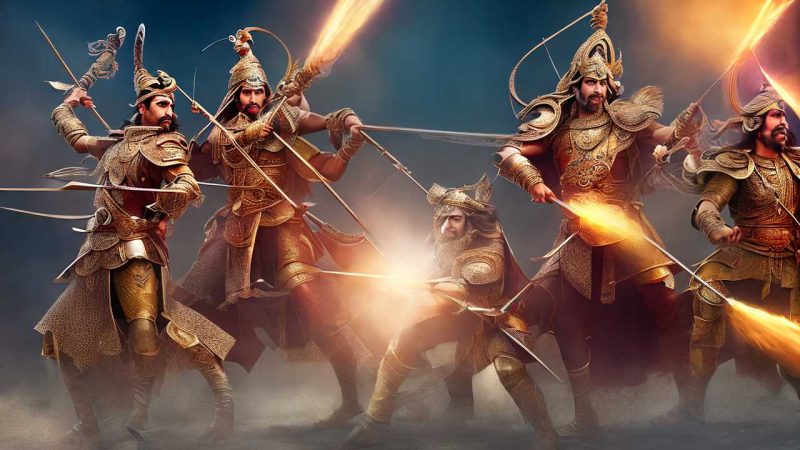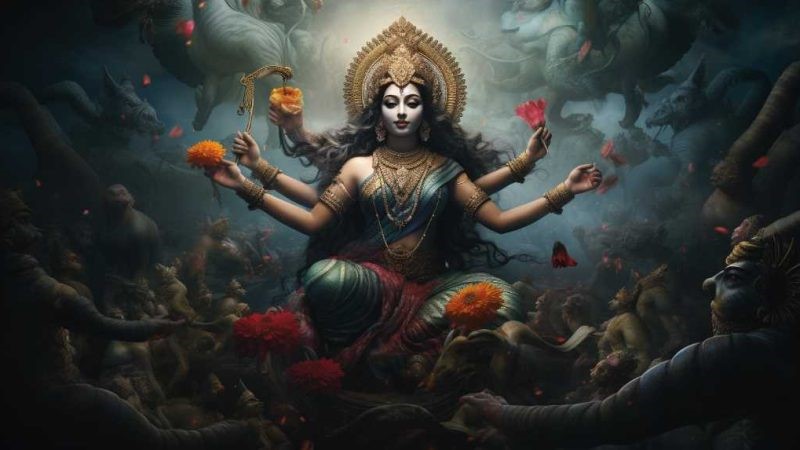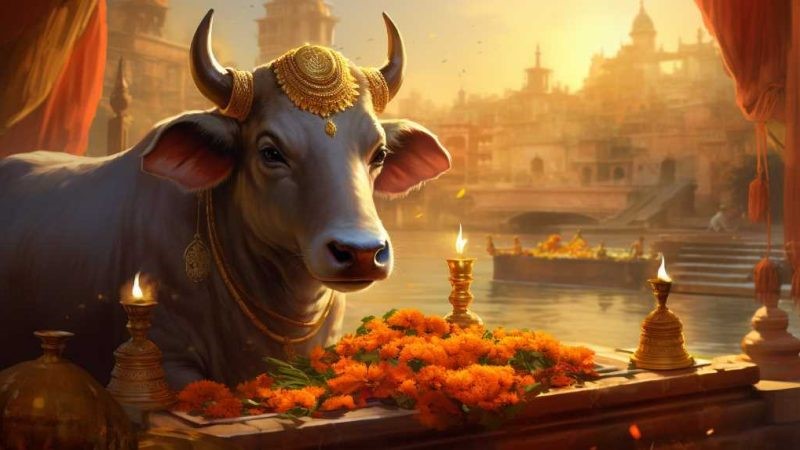The Guardian Elephants in Hindu Mythology

In Hindu stories, elephants are much more than just animals. People look up to them for their knowledge, power, and ability to protect. One famous elephant is Airavata, who serves Indra, the god king. Airavata is known as a powerful protector in heaven.
There are also the Eight Digpalas, eight mighty elephants who are believed to hold up the world. They stand guard at the main points of the compass, keeping the universe stable.
Then there’s Ganesha, the god with the head of an elephant. People pray to him for smarts and to clear away problems. These guardian elephants are important in religious ceremonies and art. They represent deep ideas that are central to Hindu beliefs and the way they see the world.
When we learn about these elephants, we start to understand how important they are to Hindu culture and their view of the universe.
Airavata: Indra’s Mount
Airavata, a legendary white elephant, is very important in Hindu stories because it is the animal that Indra, the god king, rides. It’s known for being very strong and pure. As Indra’s vehicle, Airavata represents power and the high status of the king of gods. When you see pictures of Airavata, it often has more than one head, usually five, showing that it has power in all directions, just like Indra protects people from all sides.
The white color of Airavata stands for holiness, which is something you find in many religious ceremonies and with many gods in the Hindu faith. So, Airavata is not just a powerful animal; it stands for many things, including being divine, having authority, and keeping everything in the universe in its right place.
To better understand, think of Airavata as Indra’s special car that only a king would have, showing everyone that he is in charge and has the power to protect everyone. Just like in some stories where heroes ride impressive creatures, Airavata is like a superhero’s vehicle for Indra. It’s as if the elephant has its own superpower with its many heads watching over different areas. This shows just how important and respected Indra is among the gods.
The Eight Digpalas
In Hindu stories, there are eight guardians called the Digpalas. They watch over different directions like a map – with each one in charge of a place like north or south.
Their job is important because they keep things in order, making sure everything is balanced in the world. For example, Indra is the guardian of the east, and then the list goes clockwise with Agni, Yama, Nirrti, Varuna, Vayu, Kubera, and Ishana taking care of the other directions.
They’re more than just symbols; they have a big role in both the universe and people’s lives. It’s like how what happens in the sky can affect what we do on Earth.
Myths Surrounding Ganesha
In Hinduism, many people worship Lord Ganesha, who is recognized by his elephant head. He’s at the heart of many stories that teach us important lessons and values.
One famous story explains why he has an elephant head. It goes like this: Goddess Parvati made Ganesha from turmeric paste to protect her home. When Lord Shiva met Ganesha, he didn’t know who Ganesha was, which led to a fight and Ganesha losing his head. Later, Lord Shiva replaced Ganesha’s head with that of an elephant, which shows us how elephants are seen as good luck in Hindu beliefs.
These stories are not just for entertainment; they teach us right from wrong and share religious knowledge.
Elephants in Hindu Rituals
Elephants are very important in Hindu rituals because they represent powerful symbols like strength, wisdom, and royal authority. People see them as living forms of gods.
During temple celebrations, especially in South India, elephants are dressed up with colorful fabrics and decorations to show their holy role. They lead parades, carrying the statues of gods, showing that they’re not just part of the show but have a deep spiritual purpose.
They’re like sacred taxis for the gods, which shows just how much respect people have for elephants in Hindu religion.
Symbolism and Significance
In Hindu stories, elephants are really important. They stand for many things like strength, smartness, and being close to the gods. Elephants show us that the world is strong and steady, but they also teach us about being wise and keeping things peaceful.
The god Ganesha, who has an elephant’s head, is a great example. He teaches us a lot through the way he looks. His big ears mean he’s good at listening to important things, his small mouth reminds us to think before we speak, and his one tusk tells us to focus on finding spiritual truth.
So, in these stories, elephants are more than just big animals; they teach us about being strong in a good way, smart, and nice to others.
Let’s talk about Ganesha a bit more. People love him because he represents using your mind to solve problems and being kind. He’s like a symbol for doing well in life and getting through tough times. When you see Ganesha in art or at a temple, the details tell you about his character. His big head encourages us to think big, and his large stomach tells us to digest all the good and bad in life.
In short, when you read about elephants in Hindu tales, remember they’re not just talking about the animal. They’re actually giving us lessons about how to live better.
Conclusion
Elephants are very important in Hindu stories. They stand for power, smarts, and being protected by the gods. Airavata and the Digpalas are elephant guardians in space, showing how much people respect them. Then there’s Ganesha, an elephant god linked with being smart and getting past tough spots. Elephants are also part of Hindu ceremonies and symbols, which shows how much they mean in this culture. They’re not just seen as animals; they’re a big part of what people believe, mixing religious ideas with everyday life.
To make it clear, elephants are more than just animals in Hindu beliefs. They’re signs of something bigger. For example, people pray to Ganesha when they want to start something new without any trouble. This shows how elephants are woven into both the spiritual world and daily life. The stories and practices around them help us understand the rich details of Hindu culture.






